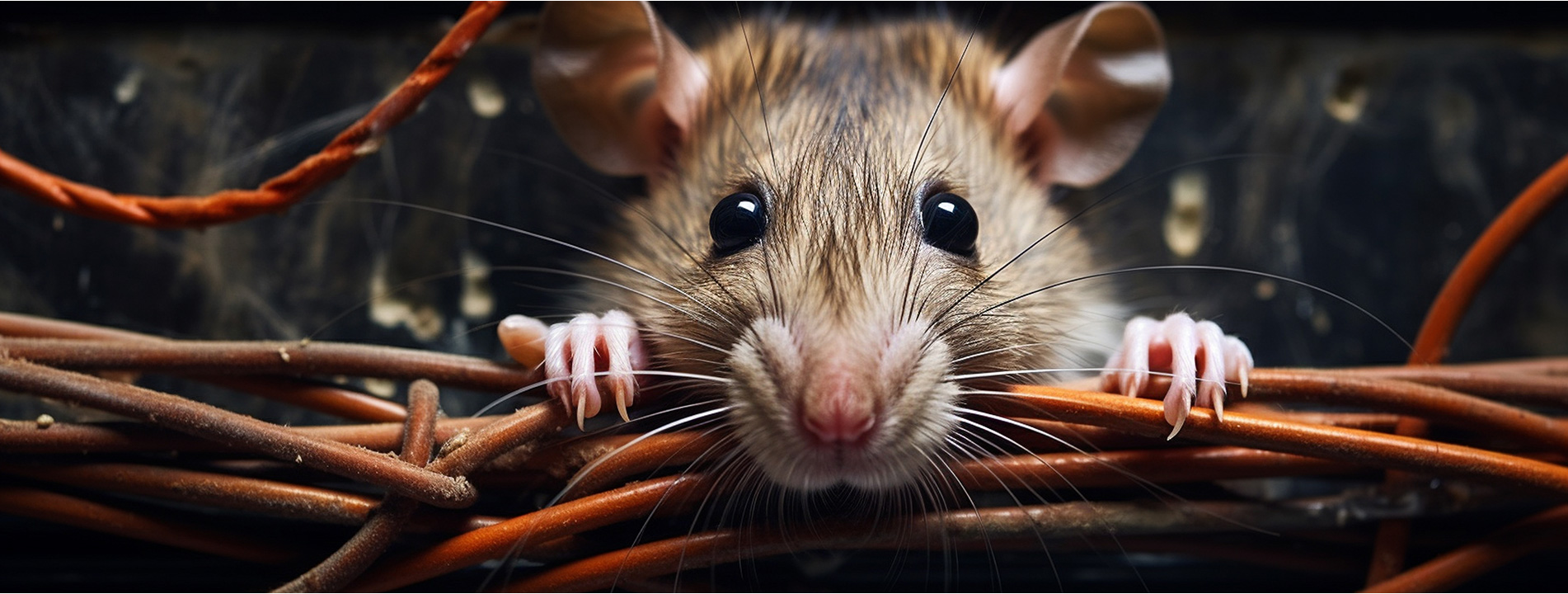Motorists across the UK are increasingly reporting vehicle damage caused by rodents, with a sharp rise in insurance claims linked to rats, mice and other small animals. In 2024, claims for such incidents rose by 28%, as rodents were found nesting in vehicles, chewing through wiring, and even gnawing on seatbelts. The problem tends to worsen during the colder months, when animals seek warmth and shelter in vehicles, garages, and storage areas.
According to Aviva, the average claim for rodent-related damage last year reached £2,494 – up from £2,253 in 2023, representing an 11% increase. In one extreme case, repairs exceeded £24,000, leading to the vehicle being written off due to extensive damage both inside and out.
RAC patrol Nick Isaac, who operates in the South West of England, recalled one unusual incident: “The car had lost power and had an odd smell. When I lifted the bonnet and revved the engine the air filter moved like it was being sucked towards the engine. It turned out a squirrel had been taking nuts from a bird feeder and storing them in the air box, restricting air flow to the car.”
In another case, an RAC patrol discovered that ten mice had built a nest beneath the scuttle panel at the base of a Porsche’s windscreen. RAC Breakdown spokesperson Alice Simpson said: “Many of us are used to seeing the occasional rat or mouse on the street, but finding one in your car is not only a nasty shock but often the cause of very unwelcome and expensive damage.
Unfortunately, incidents like this are more common than drivers might expect, particularly over the winter months when animals look to take shelter from the cold conditions. To reduce the risk of animal damage, check your car if it hasn’t been driven for a week or more. The best advice is to make sure no food – for pets or humans – is left inside. Also check for unusual smells in the vehicle and be mindful of any dashboard warning lights that don’t disappear after a minute or two. Any foodstuff in garages should be kept in airtight containers or locked in metal bins.
If you suspect your vehicle has sustained animal damage, whether that’s chewed cables, clogged air filters or a nibbled diesel priming bulb, you should contact a reputable mobile mechanic or use the RAC’s Approved Garage Network to find a local garage that provides quality repairs. Car insurance does cover animal damage, but it’s worth checking before you claim to see if the damage justifies the expense.”
As the weather turns colder, experts are urging drivers to stay vigilant and take preventative measures to stop rodents from turning their vehicles into makeshift homes — and to avoid potentially costly repairs this winter.


